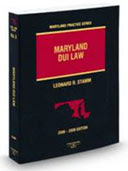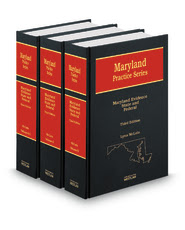The Hawaii Supreme Court announced its decision today in State v. Won. The court held that where a suspect in a DUI case is told that it is a crime to refuse to submit to an alcohol test, that consent to submit to the test is coerced and invalid because it is not voluntary. The Fourth Amendment requires that searches be conducted pursuant to a search warrant or the government must rely on an exception to the warrant requirement. In most DUI cases, the government relies on consent to justify warrantless breath and blood tests. However, some jurisdictions have criminalized refusal to submit to a test, providing that refusal can result in a jail sentence.
The Hawaii court said:
Where arrest, conviction, and imprisonment are threatened if consent to search is not given, the threat infringes upon and oppresses the unfettered will and free choice of the person to whom it is made, whether by calculation or effect.30 See id. at 261-63, 925 P.2d at 829-31 (finding that a permissive response to a request to search the defendant resulted only from “inherently coercive” circumstances that were “calculated to overbear [the defendant’s] will”); Pauʻu, 72 Haw. at 508, 824 P.2d at 835 (same). Thus, the threat of the criminal sanction communicated by the Implied Consent Form for refusal to submit to a BAC test is inherently coercive. [Footnotes omitted].
The court also said:
Thus, as in Nakamoto, it is clear that Won had no other alternative to avoid prosecution for the refusal offense but to submit to the search; as in Puaʻa, withholding consent was futile, as any other course would have resulted in Won’s commission of a crime. Consequently, the position in which Won was placed, because of the criminal sanction for refusal, the forced selection between constitutional rights, and the potential significant punishment the sanction entailed, was inherently coercive. See Trainor, 83 Hawaiʻi at 263, 925 P.2d at 831; Ramones, 69 Haw. at 405, 744 P.2d at 517; Shon, 47 Haw. at 166, 385 P.2d at 836.
As the coercion engendered by the Implied Consent Form runs afoul of the constitutional mandate that waiver of a constitutional right may only be the result of a free and unconstrained choice, the choice presented to Won compromised the values of individual dignity and personal autonomy protected by article I, section 7 of the Hawaiʻi Constitution. For this reason, Won’s election on the Implied Consent Form to submit to a BAC test is invalid as a waiver of his right not to be searched. [Footnotes omitted].
In Maryland, there are numerous areas under the jurisdiction of the National Park Service where 36 CFR § 4.23 makes refusal to submit to a breath test a crime punishable by up to six months in jail and/or a $5,000 fine. In Maryland state court, refusal carries a possible enhancement of 60 days in jail if the defendant is found guilty of driving under the influence or while impaired. According the decision and reasoning of the Hawaii Supreme Court, all warrantless breath and blood tests in Maryland obtained by consent are illegal and in violation of the Fourth Amendment!
Leonard R. Stamm has been making this argument without success in federal court. See United States v. Millner, 2015 WL 3557546 (D.Md. 2015)(not reported); United States v. Muir, 2015 WL 2165570 (D. Md. 2015)(not reported). However, Won gives credence to Stamm’s arguments and merits a second look by state and federal courts.
If you are facing criminal or traffic charges in Maryland state or federal court, call Leonard R. Stamm of Goldstein & Stamm, P.A. at 301-345-0122 for a free consultation.
Leonard R. Stamm
Goldstein & Stamm, P.A.
6301 Ivy Lane, Suite 504
Greenbelt, MD 20770
301-345-0122
(fax) 301-441-4652
www.dwiattorneymaryland.com
www.marylandduilawyer-blog.com

Author: 2015 update to Maryland Evidence: State and Federal by Professor Lynn McLain (coming this fall)
“Patience, Perseverance, Persuasion”
 Maryland DUI Lawyer Blog
Maryland DUI Lawyer Blog


